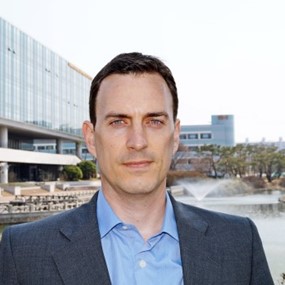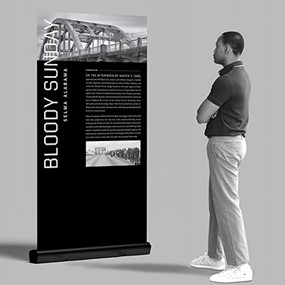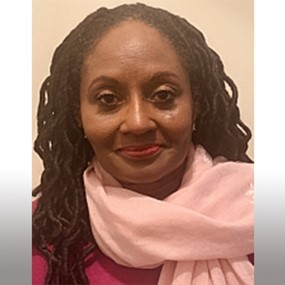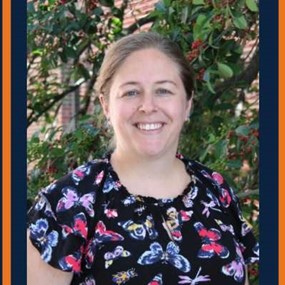Meyer conducting research surrounding diversity and inclusion within the aviation industry
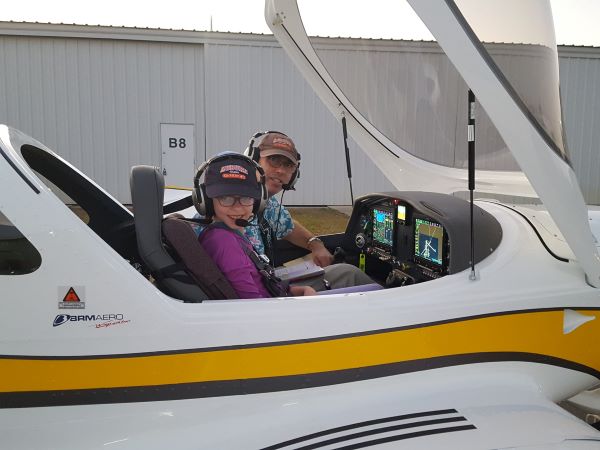
Following a lifetime of interest in aviation, Alan Meyer is currently conducting research surrounding diversity and inclusion within the industry. Meyer is an associate professor who teaches history of technology and aviation history. He has acquired an array of experiences from earning a pilot’s license at 18-years-old to serving with the Green Berets.
Student writer Elizabeth Phillips speaks with Meyer about his background and what led to his interest in equity research.
What sparked your interest in technology and aviation history?
By the time I graduated from high school, I was convinced that I hated history. I thought it was just a bunch of boring names and dates with no connection to the present—a direct reflection of my experience in the classroom. I went to college to study aeronautical engineering, and begrudgingly signed up for a history class only because it was required by my Army ROTC scholarship. Despite my initial misgivings, that class was amazing, and it was only then that I began to realize that history could help me understand the present-day world in which we live.
Even though it wasn't required, I took another history course, and then another. By this time, I’d been studying engineering for a couple of years and had started to realize that I really wasn't cut out for that career—my strengths and interests lay elsewhere. So I switched majors. As an engineering student I had already completed more than enough math and science credits to graduate, so I took almost nothing but history courses for the next year and a half. And that's when I learned the importance of good—and poor—teaching. I took several classes that I'd worried might be boring, but the professors managed to make the subjects absolutely fascinating. But I also had one or two professors who, just like my high school teachers, managed to make what should have been fascinating topics seem dull and lifeless. Those experiences as an undergraduate shaped my aspiration to make history accessible, interesting, and relevant to students.
What are your specific research interests?
Broadly speaking I'm a social and cultural historian of technology, with a narrower focus on aviation history. This means I study how people interact with technology, not just the nuts and bolts of airplanes. I'm particularly interested in how gender, race, and class play out in technology and society.
When you graduated from the ROTC program, where were you stationed?
After I graduated college and was commissioned as a second lieutenant in the Army, my initial training took place at Fort McClellan in Anniston, Alabama. This was a bit of a change of scene for a kid who was born and raised in Michigan. From there I went to Okinawa, Japan for three years, an even bigger change for someone who had never travelled overseas before. In Okinawa I was assigned to a unit from the First Special Forces, better known as the Green Berets. Now, I was there in a support job and was not myself a Green Beret at the time. But that assignment introduced me to the world of Army Special Operations—which is very different from the rest of the Army—and that's where I made the decision to remain on active duty beyond my initial service commitment so that I could complete the nearly two years of training it took to become a Green Beret. I ended spending eight years on active duty before I returned to graduate school to pursue a PhD in history.
What interests you about aviation?
We like to blame everything on our parents, right? Long before I was born, my parents bought a house on the final approach path to the municipal airport in my hometown. As a result, we had airplanes coming and going over our house every day while I was out playing in the backyard. So, I developed an interest in flying from an early age, and I guess it stuck.
Then, in the summer between graduating high school and starting college, I earned my private pilot's license. In retrospect, one of the biggest favors that my parents did for me was not paying for my flight instruction. They didn't object to me taking lessons, but they made it clear they weren't going to pay a cent. My dad, who had grown up during the Great Depression, was very practical, and sometimes came across as a bit stern, especially to a know-It-all teenager like me, declared: “I don't think you should start learning to fly until you have enough money to finish what you start.” Well, I really wanted to learn how to fly. And in retrospect, I guess I also decided to that I would "show him" that I really could finish what I started, no matter how ambitious the goal. So I started working, first delivering newspapers, then later at a pizza joint and a gas station, to save up the money to pay for my private pilot’s license.
It turned out to be a pivotal moment for me. That pilot’s license felt like it was truly mine because not only had I done the work of learning to fly, but also the work of earning the money to pay for it. And, somewhat to the surprise of my eighteen-year-old self, but maybe not so much now that I'm a bit older and wiser, my dad was really proud of my accomplishment.
Were you able to continue flying after getting your pilot's license?
Yes. During my freshman year in college I was a member of Western Michigan University's competition flight team. But after that, ROTC seemed to take over most my free time. However, I still managed to keep flying through college and beyond, even while I was living in Japan, and later I learned to fly gliders while I was stationed in Colorado. I finally stopped flying for several years after I was hired by Auburn University. I was a junior professor working very hard to earn tenure, still an officer in the Army Reserve, and by this time I had a family with two small children. There was just too much going on, so I took a 10-year break from flying. I've been back in the air now for a couple of years. I own an airplane, which I keep here at the Auburn University Regional Airport. I don't fly it nearly as often as I'd like, but I still try to practice what I teach.
What brought you to Auburn?
The history profession is pretty competitive and can be challenging to break into. The year I was hired by Auburn, there were maybe six history of technology jobs advertised nationwide. Rumor has it there were about 80 applicants, and probably every one of those individuals applied to all six jobs. So, it's not so much that I chose Auburn, but that Auburn chose me. I was very fortunate in that regard.
I've been pleased that I ended up here in the Department of History at Auburn University. I've had the pleasure of working with great colleagues as well as some really excellent students at both the undergraduate and graduate level. And the College of Liberal Arts has been very supportive of research and many of the projects that we do as historians.
Can you explain a little about your current project; Flying While Black and what inspired you to write this book?
Flying While Black grew out of my first book, Weekend Pilots, where I used post-World War II private aviation as a case study to explore why there are still so few women pilots. In 1959 only about 3 percent of all civilian pilots in the United States were women. Women weren't allowed to fly for the military, and the airlines refused to hire women pilots, too. Two decades later, in the late 1970s, by which time both the military and the airlines had opened up the pilot's seat to women, that figure had doubled to 6 percent. While that's still pretty low, it's an improvement. But then it stopped rising. Today, only about 7 percent of civilian pilots are women, and numbers for military aviators are even lower.
It's no longer about women not being allowed to do this. It's about new generations of girls and young women choosing to not pursue a career in aviation, or maybe never even considering it in the first place. So, I started looking at social and cultural explanations. One of the things that I found pretty quickly was that even though the formal barriers to women had been removed, aviation has remained a highly masculine activity in terms of the culture you encounter when you walk through gate at your local airport to sign up for flying lessons, or hang out in the pilots' lounge, or when you fly with other pilots, most of whom—about 93 percent in fact—are male. And this culture influences who feels welcome and who doesn't, and even seems to influence who does and doesn't consider a career in aviation even before they take that first step through that airport gate or tell a recruiter that they want to fly for the military.
Anyway, while I was exploring social and cultural practices of gender-based inclusion and exclusion for Weekend Pilots, I became acutely aware that, like women, nonwhite minorities were traditionally—and remain to this day—significantly underrepresented in the cockpit. Almost everybody’s heard of the Tuskegee Airmen. We celebrate these pioneering aviators’ impressive record fighting racial prejudice at home and enemy fliers in the skies over Europe. Yet few people today realize that none of the roughly 1,000 African American men who earned their wings at Tuskegee Army Airfield during World War II ever had a chance to fly for a major U.S. passenger airline after the war. Even as the postwar airline industry took off, the airlines flatly refused to hire Black aviators, even those who had the same training as their white counterparts.
It took a 1963 Supreme Court case to finally pry open the cockpit door for Black airline pilots. And it took another 15 years before the airline industry reached a dubious milestone of more than 100 Black pilots in 1978. I call this a dubious milestone because those 100 pilots represented just 0.25 percent of the roughly 40,000 pilots employed by the airlines. And even today, nearly 60 years after that Supreme Court case that made it illegal for airlines to refuse to hire pilots on the basis of race, less than 3 percent of all pilots are African American.
So, just as Weekend Pilots explored why there are still so few women pilots after all these years, my new book project, Flying While Black, investigates the various reasons for the continued slow pace of racial integration in the airline cockpit.
Do you have any advice or recommendations for students who are looking to pursue a career in history?
My advice is that while I love being a professor, there are other really good careers related to history besides being a professor. The best way to learn about them is by talking to history professors. Make an appointment or show up during office hours. If you're taking a class with a professor, talk with them after class. Most history professors like to talk about history or their field.
That's one piece of advice that I have, and another piece of advice is that you don't necessarily have to major in history. What initially attracted me to history was that it helped me understand the world in which I live, and it helped sharpen my analytical skills and my writing skills in ways that were important in my military career. You can achieve this with a history minor as well, and will not have to take that many classes.


